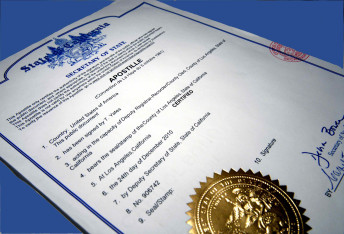Understanding Living Trusts in Estate Planning
Estate planning is a critical process that involves preparing for the transfer of your assets and property after your lifetime. One effective tool in estate planning is the living trust, which offers numerous benefits for individuals and families. Contrary to popular belief, living trusts are not only for the wealthy; they can be invaluable for anyone who owns property or has dependents relying on them. In this article, Legal Marketplace CONSULTANT presents a comprehensive overview of living trusts, explaining how they work, their advantages, and why you should consider incorporating one into your estate planning strategy.
What is a Living Trust?
A living trust, also known as a revocable living trust, is a legal document created during a person's lifetime that places their assets into a trust. This trust holds ownership of the assets on behalf of the trust creator, referred to as the grantor, and outlines how these assets should be managed and distributed both during the grantor's lifetime and after their death. The defining feature of a living trust is that it can be altered or revoked by the grantor at any time as long as they are mentally competent.
How Does a Living Trust Work?
When a living trust is established, the grantor transfers ownership of their assets—such as real estate, bank accounts, investments, and personal property—into the trust. The trust is managed by a trustee, who can be the grantor themselves during their lifetime. The trustee is responsible for overseeing the trust assets according to the instructions laid out in the trust document. Upon the grantor's death, a successor trustee, named in the trust, takes over management and distribution of the assets to the beneficiaries.
One of the key advantages is that assets held in a living trust avoid the probate process, which is a public and often time-consuming legal procedure required to validate wills and administer estates. By avoiding probate, families can benefit from a faster, more private transfer of assets.
Benefits of a Living Trust
- Avoids Probate: Living trusts bypass the probate court, enabling your heirs to receive their inheritance more quickly and without costly court fees.
- Maintains Privacy: Since probate is a public process, avoiding it helps keep your financial affairs confidential.
- Provides Control: While alive, you retain full control over your assets and can modify the trust as your circumstances change.
- Ensures Smooth Transfer: A living trust clearly specifies how assets are to be distributed, reducing the likelihood of disputes or confusion among beneficiaries.
- Supports Disability Planning: If you become incapacitated, the living trust allows a successor trustee to manage your finances without court intervention.
- Not Just for the Wealthy: Any individual with property or dependents can benefit from a living trust's protections and advantages.
Who Should Consider a Living Trust?
A living trust can be advantageous for a broad range of individuals, including:
- People with significant assets or multiple types of property to manage;
- Individuals who want to ensure privacy and avoid probate;
- Those with dependents who require careful financial planning;
- Seniors planning for potential incapacity;
- Anyone seeking to streamline the estate transfer process for their heirs.
How to Create and Maintain a Living Trust
Creating a living trust involves drafting a trust document that specifies the terms and conditions of asset management and inheritance. This document should be prepared with the assistance of an experienced estate planning attorney to ensure it complies with state laws and addresses your specific needs.
Once the trust is established, the grantor must transfer their assets into the trust by retitling property and accounts in the name of the trust. This step is essential; without it, the trust will not control these assets.
It is also important to regularly review and update your living trust, especially when life events occur, such as marriage, divorce, birth of children, or significant changes in financial circumstances. Typically, reviewing your living trust every few years helps to keep it current and aligned with your goals.
Common Misconceptions About Living Trusts
There are several myths surrounding living trusts that can discourage individuals from considering them as part of their estate planning. Here are some common misconceptions clarified:
- "Living trusts are only for the wealthy": While beneficial for large estates, living trusts are also valuable for moderate to small estates, especially when privacy and avoiding probate are priorities.
- "Creating a living trust is complicated and expensive": Although working with an attorney is recommended, the process is straightforward and the benefits often outweigh the initial costs.
- "Living trusts eliminate estate taxes": A living trust does not inherently reduce estate taxes but can be used in conjunction with other strategies to optimize tax implications.
- "Once set up, a living trust cannot be changed": As a revocable trust, it can be amended or revoked at any time while the grantor is alive and competent.
The Role of Legal Assistance in Establishing a Living Trust
Although it is possible to create a living trust using online resources or self-help kits, obtaining professional legal advice ensures that the trust is properly drafted and tailored to your unique circumstances. An experienced estate planning attorney can help:
- Explain the options available and recommend the best type of trust for your needs;
- Draft a legally sound trust document complying with the laws of your jurisdiction;
- Assist in transferring assets into the trust correctly;
- Advise on updating the trust in response to life changes;
- Coordinate the trust with your overall estate plan, including wills, powers of attorney, and healthcare directives.
Reviewing and Updating Your Living Trust
Life is dynamic, and your estate plan should reflect that. It is recommended to review your living trust every three to five years, or sooner if significant life events occur, such as:
- Marriage or divorce;
- Birth or adoption of children or grandchildren;
- Changes in financial status or acquisition of major assets;
- Changes in state or federal law affecting trusts or estates;
- Relocation to a new state.
Keeping your living trust up to date ensures that it remains effective in fulfilling your wishes and providing for your loved ones.
Conclusion
A living trust is a powerful and flexible estate planning tool that can streamline the transfer of your assets, protect your family's privacy, and provide peace of mind. Legal Marketplace CONSULTANT encourages everyone with property or dependents to consider establishing a living trust as part of a comprehensive estate plan. Proper legal guidance and regular updates are key to maximizing the benefits of a living trust. If you need professional assistance in creating or managing your living trust, please contact us through the communication channels provided in our bio or send a private message. Our team is dedicated to helping you secure your legacy efficiently and effectively.
Legal Marketplace CONSULTANT is committed to providing comprehensive legal services specializing in estate planning, living trusts, and asset protection to individuals and families seeking peace of mind about their future.































